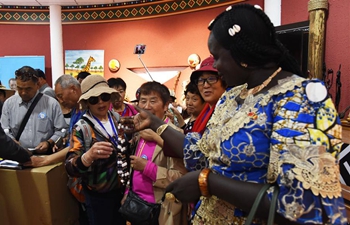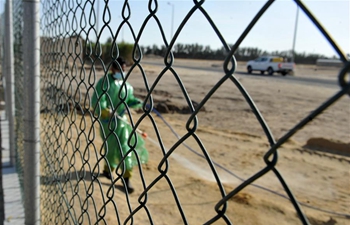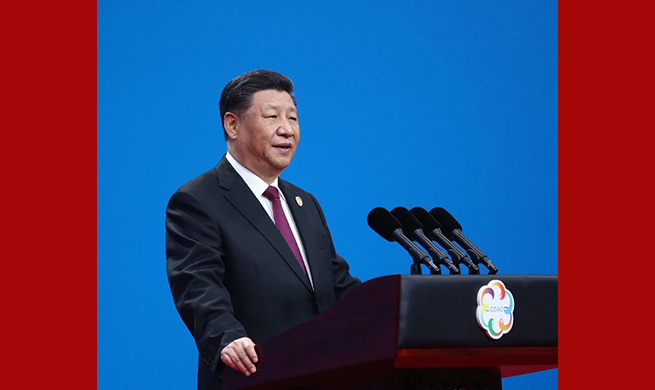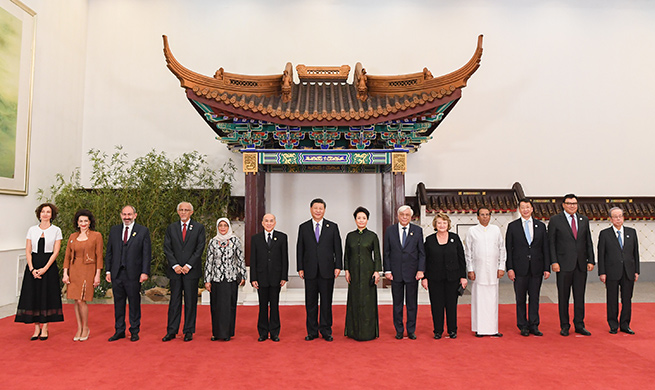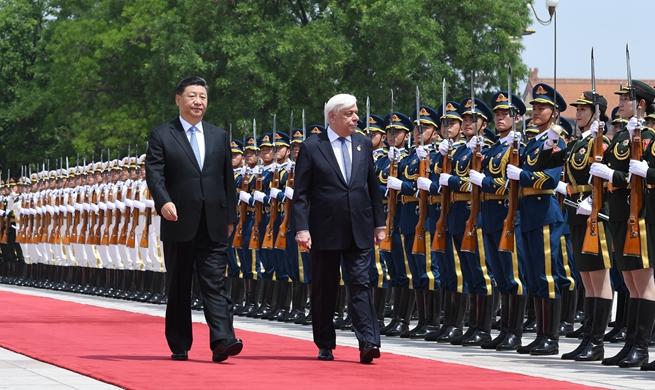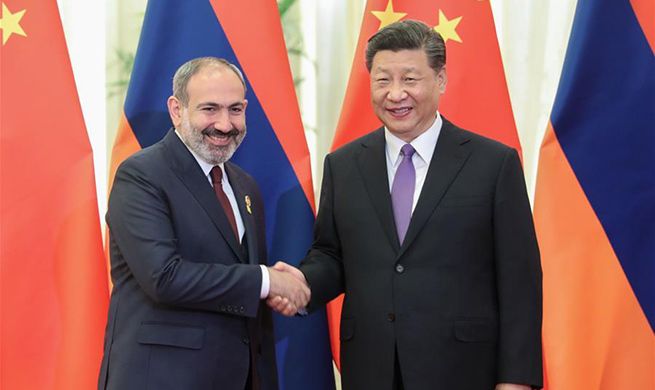GENEVA, May 15 (Xinhua) -- Nuclear deterrence targeted against non-nuclear-weapon states is a manifestation of hegemonism and power politics, said Chinese Ambassador for Disarmament Affairs Li Song at the ongoing Conference on Disarmament here in Geneva.
He made the remarks on Tuesday during the second part of the 2019 session of the Conference on Disarmament, when discussions were held in an informal setting on the question of nuclear deterrence. The session will conclude on June 28.
Li pointed out that the nuclear deterrence policy based on the first use of nuclear weapons is itself one of the greatest threats to international peace and security.
"The ghost of the Cold War mentality is still in the genes of some major power when contemplating its national security strategy. The pursuit of unilateralism, hyping up of major power competition and geopolitical rivalry, and the search for overwhelming military advantage by the relevant country have continued to worsen the international security environment," he noted.
During the session, the ambassador reiterated China's nuclear strategy and its position on nuclear disarmament.
China staunchly pursues a nuclear strategy of self-defense, he said, adding that what makes China's nuclear strategy unique from those of other nuclear-weapon states is that China was compelled to develop nuclear weapons at a particular time during the Cold War, in order to deter the nuclear threat, break the nuclear monopoly and prevent nuclear war.
"It developed nuclear weapons not for the purpose of threatening other countries. China takes no part in nuclear arms races of any kind, provides no nuclear umbrella for other countries, and does not deploy nuclear weapons in other countries," Li noted.
According to the Chinese ambassador, during the time when it has possessed nuclear weapons, China has unswervingly upheld its unconditional commitments of "non-first-use of nuclear weapons" and "no use or threat to use nuclear weapons against non-nuclear-weapon states or nuclear-weapon-free zones," and these commitments will not change in the future.
China has been actively committed to promoting dialogue among the five nuclear-weapon States on nuclear doctrines and policies, and believes that all parties should have an objective assessment of each other's strategic intentions, respect each other's security concerns, exercise proper management of differences, prevent accidents and crises resulting from strategic miscalculation, and avoid major power competition becoming self-fulfilling prophecy.
He called on nuclear-weapon states to abandon the Cold War mentality and zero-sum thinking, renounce nuclear deterrence polices with preemptive nuclear strike at its core, restrain the impulse to engage in a nuclear arms race, diminish the role of nuclear weapons in national security doctrines, and make joint efforts to maintain international and regional strategic balance and stability.
With regard to the issue of so-called "China's participation in the U.S.-Russia nuclear disarmament process", Li said China does not intend and does not see any necessity to join bilateral talks between the U.S. and Russia on nuclear disarmament.
"Following a national defense policy that is defensive in nature, China maintains a reasonable and moderate national defense input. Its nuclear force is always kept at the minimum level required by national security needs, which is totally not at the same level with that of the U.S. and Russia," he explained.
"The U.S. and Russia, as countries possessing the largest nuclear arsenals, should in accordance with the long-standing consensus of the international community, fulfill their special and primary responsibility for nuclear disarmament and should continue to make drastic and substantive reductions in their nuclear arsenals," he said, adding that this would create necessary conditions or environment for other nuclear-weapon states to join in multilateral nuclear disarmament process.







